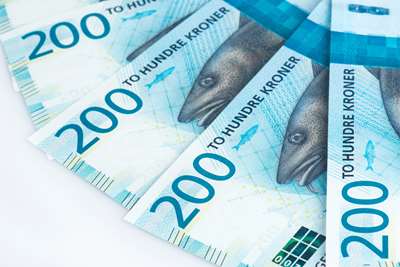UPDATED: Norway’s central bank did what it’s never done before on Thursday, slicing its already record-low key policy rate from just a quarter-point down to zero. The bank’s committee in charge of monetary policy and financial stability viewed it as the right thing to do, given all the economic damage caused by Corona virus control measures.

The committee’s decision was unanimous and came even though many economists and analysts had predicted Norges Bank would resist such a dramatic move. The central bank had already acted quickly in March to cut its policy rate from 1.5 percent down to 0.25 percent, in response to strict Corona containment measures imposed by the Norwegian government on March 12.
Norges Bank Governor Øystein Olsen made it clear, however, that the country’s central bank would resist resorting to negative interest rates as a means of stimulating the economy. “In the committee’s current assessment of the outlook and balance of risks,” Olsen stated in a press release, “the policy rate will most likely remain at today’s level for some time ahead. We do not envisage making further policy rate cuts.”
Olsen and the central bank he leads clearly want to do what they can to help revive the economy. He said he now expects commercial banks to follow up by lowering their own lending rates, presumably by more than the mere 0.85-point cut most made after the central bank cut rates by 1.25 points in March. The central bank things mortgage rates, for example, should lie at around 1.75 percent in the years ahead.
Norway has been hit hard not only by the Corona containment measures that have shut down most of the country since March 12, but also by the collapse in oil prices. The country’s offshore North Sea oil fuels the economy, and it’s now bringing in just a third of the revenues from even just a few months ago, when they were already much lower than they’d been during the boom years of the past decade. Some oil fields won’t turn a profit at current prices for North Sea crude oil, and investment in new projects can be more risky than ever.
Gloom seeping in
The ripple effects are already hitting Norway’s oil service sector, not least offshore yards and oil company- and platform supplies, with gloom seeping into other sectors as well. Then come all the closed restaurants, hotels and other businesses, along with grounded airlines, laid-up cruiseships and docked ferries. Norway’s tourism industry faces a miserable summer after already losing huge sums this spring.
Even seafood exports have fallen off, causing concern in what has been Norway’s second-largest industry after oil. New figures from Norway’s seafood council this week show that 183,000 tons of seafood valued at NOK 8.2 billion were exported in April. Newspaper Dagens Næringsliv (DN) reported how that’s down by NOK 666 million, or 8 percent compared to April of last year, and marks the first decline in 18 months.
The declines across most all business sectors in Norway have thrown nearly 400,000 Norwegians out of work, a lot in a country with a total population of less than 6 million. With an estimated 15 percent of the workforce now filing for unemployment benefits, even Norway’s traditionally strong economy and its huge sovereign wealth fund are being put to the test.
‘Uncertainty unusually high’
Norges Bank’s committee noted that the “uncertainty surrounding developments ahead is unusually high.” Prime Minister Erna Solberg was due to announce plans later in the day for further easing of her government’s Corona containment measures. Even though that can revive the economy, the central bankers think it will “likely take some time for output and employment to return to the levels prevailing before the pandemic.”
The committee noted that low interest rates “cannot prevent the Corona virus outbreak from having a substantial impact on the Norwegian economy, but can help dampen the downturn.” Low rates “will support a faster rebound in activity” as the situation normalizes, the committee noted. That in turn “may reduce the risk of unemployment becoming entrenched at a high level.”
Norway’s krone weakened on the news of the rate cut, but not as much as could have been expected. It was trading at around NOK 10.30 to the US dollar on Wednesday, strengthened a bit to NOK 10.28 Thursday morning, and was back down to NOK 10.33 after the rate announcement.
Several economists were surprised by the interest rate cut to zero percent. “No, we had not expected this,” the chief economist at Danske Bank told DN, “but Norges Bank wants to do everything it can to make the negative consequences (of the Corona virus) as small as possible and that things don’t become unnecessarily bad.”
Erica Blomgren Dalstø, chief strategist at SEB, also described the interest rate cut to zero as “surprising,” adding that “this is an extremely special situation.”
NewsInEnglish.no/Nina Berglund

